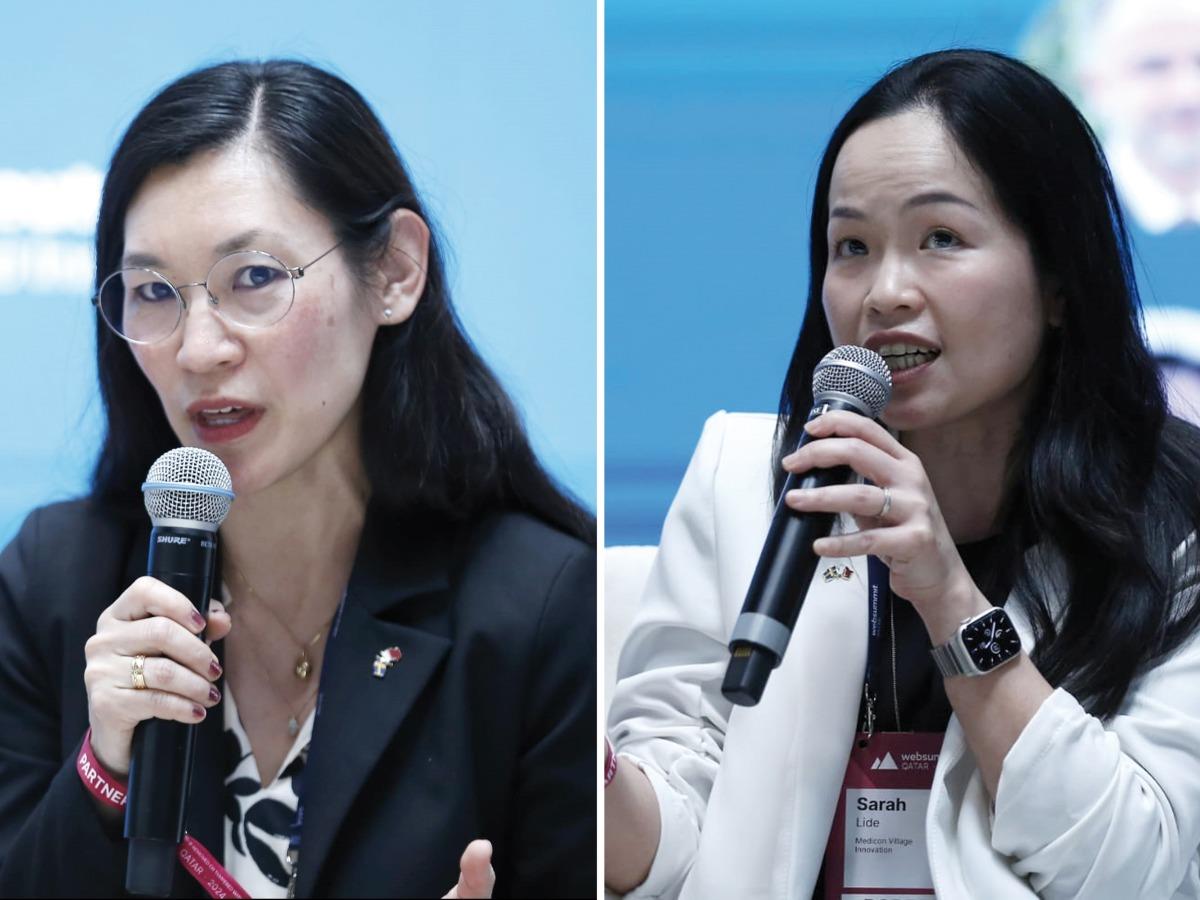
Sweden Seeks Collaboration With Qatar In Life Sciences, Precision Medicine
Doha, Qatar: Collaboration between Qatar and Sweden in life sciences and precision medicine can yield significant benefits for both countries; however specific areas of collaboration need to be identified, say experts.
Qatar's path towards precision medicine and Sweden's approach to the life science ecosystem has great potential for partnership.
Dr. Åsa Wallin, Director Future Precision Health, Swelife, Linköping University and Sarah Lidé, Deputy CEO, Medicon Village Innovation in Sweden, during their recent participation in the Web Summit Qatar spoke to The Peninsula on areas of Sweden's thriving life science ecosystem and about potential collaborations.
Dr. Åsa, an accomplished innovation expert, leading a Swedish life science initiative to promote and accelerate transatlantic collaborations in science and innovation across academia, industry and the public sector reflects on possible knowledge and experience sharing between Qatar and Sweden.
Speaking on her experience during the visit to Qatar Biobank, Dr. Åsa said,“Qatar Biobank has gathered a larger share of the population-based information, which is very interesting,” indicating that unique data collected at the Qatar Biobank can benefit many.
Dr. Åsa, who lives in Silicon Valley, highlighted the“Triple Helix” model of collaboration between academia, industry, and government.
“Sweden has a strong track record of collaborations between healthcare, industry and academia and with ambitions to strengthen the engagement of NGOs, such as patient organizations – which I see as a strong benefit. We also work with sustainability in an integrated way, which is a key for sustainable innovations – so that is an area where Sweden could collaborate with Qatar and other countries as well,” she said.
Speaking about the life science ecosystem in Sweden, Sarah Lidé said“There are opportunities to collaborate between Qatar and Sweden in precision medicine”. She emphasised the importance of meeting the wider part of the global population.
Researchers in Qatar have unveiled a high-resolution map of the genetic structure of Arab and Middle Eastern populations, providing new insights into human history in the region and ancestral patterns that may help to explain local human traits and disease risks.
In Sweden among the approximately one million people of Middle Eastern descent, many are from the Arab world and share the genetics with this region. This indicates that there is scope to collaborate for future, more tailor-made precision medicine, based on the shared genetic makeup in Sweden and Qatar.
“Precision medicine has a tremendous opportunity to address rare diseases, but at the same time, patient groups are small for rare diseases. This means that available genomic data and clinical trial data tend to be much smaller, so we do need to collaborate to reach a wider patient population, with different profiles in terms of ethnic backgrounds to make sure the therapies coming to the market meet a wider patient group and account for genetic variations especially in underrepresented ancestry groups – how we approach that is very important,” she Sarah.
Sarah also described how Sweden has managed to build a thriving life science ecosystem, showcasing how the country has prepared the ground for continuous innovation and fostering spin-offs and startups to transition from seed stage to market readiness in a relatively short time frame.
Medicon Village, where she works, is the leading science park in Sweden focused on life science, with about 180 companies and organizations with a combined workforce of 2800 people.
“In Medicon Village we see half of our companies are academic spin-offs from Lund University, which is also based in the same city. So that is a very important engine for innovation and life science,” she said.
“The companies in Medicon Village are small but have the advantages of a big company in terms of sharing the infrastructure that exists in the science park,” she said, adding that companies benefit from laboratories and equipment for research.
Dr. Åsa and Sarah along with two other experts spoke at a panel discussion at Web Summit Qatar named-“Impacting Tomorrow's Healthcare: The Swedish Life Science Ecosystem”. It was organized by the Embassy of Sweden in Qatar in partnership with the Qatar Research, Innovation, and Development Council (QRDI).
H E Gautam Bhattacharyya, Sweden's Ambassador to Qatar highlighted that Qatar has a strong presence of Swedish companies and further collaboration between academia and the healthcare system in both countries would expand the existing ties.
“This sector aligns closely with the core objectives outlined in Qatar's National Vision 2030, which emphasizes sustainable growth and development. Through strategic investments in education, research, and infrastructure, Qatar aims to foster a thriving ecosystem for innovation, with a focus on delivering impactful solutions and technologies that benefit both local communities and the global population and Sweden can play a key role in this endeavour,” he added.

Legal Disclaimer:
MENAFN provides the
information “as is” without warranty of any kind. We do not accept
any responsibility or liability for the accuracy, content, images,
videos, licenses, completeness, legality, or reliability of the information
contained in this article. If you have any complaints or copyright
issues related to this article, kindly contact the provider above.


















Comments
No comment